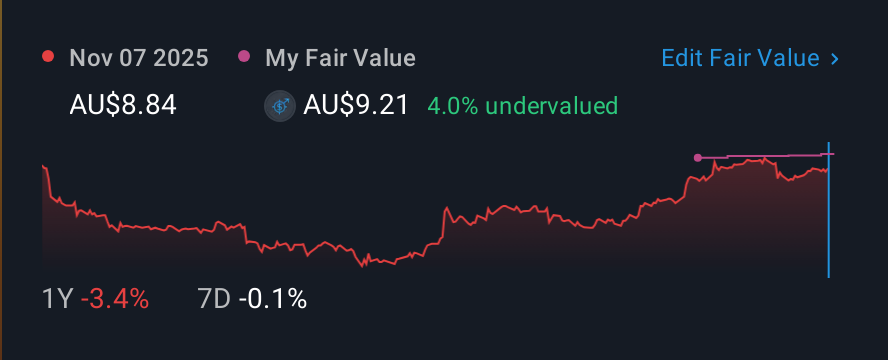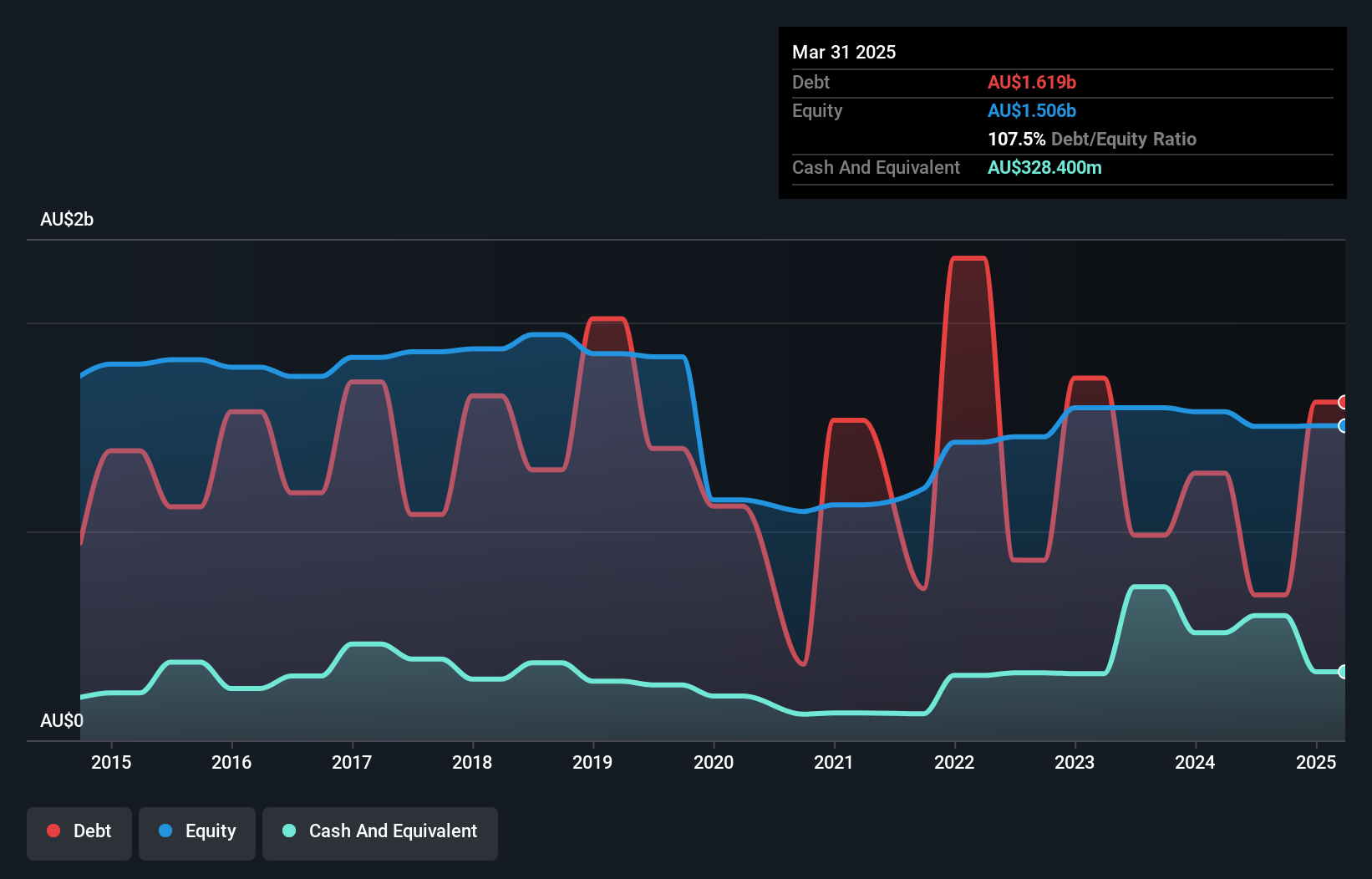- Australia
- /
- Food and Staples Retail
- /
- ASX:GNC
Here's Why GrainCorp (ASX:GNC) Can Manage Its Debt Responsibly

Legendary fund manager Li Lu (who Charlie Munger backed) once said, 'The biggest investment risk is not the volatility of prices, but whether you will suffer a permanent loss of capital.' When we think about how risky a company is, we always like to look at its use of debt, since debt overload can lead to ruin. As with many other companies GrainCorp Limited (ASX:GNC) makes use of debt. But is this debt a concern to shareholders?
What Risk Does Debt Bring?
Debt and other liabilities become risky for a business when it cannot easily fulfill those obligations, either with free cash flow or by raising capital at an attractive price. If things get really bad, the lenders can take control of the business. However, a more common (but still painful) scenario is that it has to raise new equity capital at a low price, thus permanently diluting shareholders. Of course, plenty of companies use debt to fund growth, without any negative consequences. When we think about a company's use of debt, we first look at cash and debt together.
How Much Debt Does GrainCorp Carry?
As you can see below, at the end of March 2025, GrainCorp had AU$1.62b of debt, up from AU$1.28b a year ago. Click the image for more detail. On the flip side, it has AU$328.4m in cash leading to net debt of about AU$1.29b.

How Healthy Is GrainCorp's Balance Sheet?
Zooming in on the latest balance sheet data, we can see that GrainCorp had liabilities of AU$2.16b due within 12 months and liabilities of AU$360.8m due beyond that. Offsetting this, it had AU$328.4m in cash and AU$862.5m in receivables that were due within 12 months. So its liabilities total AU$1.33b more than the combination of its cash and short-term receivables.
This deficit is considerable relative to its market capitalization of AU$1.73b, so it does suggest shareholders should keep an eye on GrainCorp's use of debt. This suggests shareholders would be heavily diluted if the company needed to shore up its balance sheet in a hurry.
See our latest analysis for GrainCorp
In order to size up a company's debt relative to its earnings, we calculate its net debt divided by its earnings before interest, tax, depreciation, and amortization (EBITDA) and its earnings before interest and tax (EBIT) divided by its interest expense (its interest cover). Thus we consider debt relative to earnings both with and without depreciation and amortization expenses.
GrainCorp's debt is 4.7 times its EBITDA, and its EBIT cover its interest expense 3.5 times over. Taken together this implies that, while we wouldn't want to see debt levels rise, we think it can handle its current leverage. The good news is that GrainCorp grew its EBIT a smooth 51% over the last twelve months. Like a mother's loving embrace of a newborn that sort of growth builds resilience, putting the company in a stronger position to manage its debt. There's no doubt that we learn most about debt from the balance sheet. But it is future earnings, more than anything, that will determine GrainCorp's ability to maintain a healthy balance sheet going forward. So if you're focused on the future you can check out this free report showing analyst profit forecasts.
Finally, a company can only pay off debt with cold hard cash, not accounting profits. So we always check how much of that EBIT is translated into free cash flow. Over the last three years, GrainCorp actually produced more free cash flow than EBIT. That sort of strong cash generation warms our hearts like a puppy in a bumblebee suit.
Our View
GrainCorp's conversion of EBIT to free cash flow was a real positive on this analysis, as was its EBIT growth rate. But truth be told its net debt to EBITDA had us nibbling our nails. Considering this range of data points, we think GrainCorp is in a good position to manage its debt levels. But a word of caution: we think debt levels are high enough to justify ongoing monitoring. There's no doubt that we learn most about debt from the balance sheet. However, not all investment risk resides within the balance sheet - far from it. For instance, we've identified 4 warning signs for GrainCorp (1 is a bit concerning) you should be aware of.
If you're interested in investing in businesses that can grow profits without the burden of debt, then check out this free list of growing businesses that have net cash on the balance sheet.
New: Manage All Your Stock Portfolios in One Place
We've created the ultimate portfolio companion for stock investors, and it's free.
• Connect an unlimited number of Portfolios and see your total in one currency
• Be alerted to new Warning Signs or Risks via email or mobile
• Track the Fair Value of your stocks
Have feedback on this article? Concerned about the content? Get in touch with us directly. Alternatively, email editorial-team (at) simplywallst.com.
This article by Simply Wall St is general in nature. We provide commentary based on historical data and analyst forecasts only using an unbiased methodology and our articles are not intended to be financial advice. It does not constitute a recommendation to buy or sell any stock, and does not take account of your objectives, or your financial situation. We aim to bring you long-term focused analysis driven by fundamental data. Note that our analysis may not factor in the latest price-sensitive company announcements or qualitative material. Simply Wall St has no position in any stocks mentioned.
About ASX:GNC
GrainCorp
Operates as an agribusiness and processing company in Australasia, Asia, North America, and Europe.
Mediocre balance sheet second-rate dividend payer.
Similar Companies
Market Insights
Community Narratives



